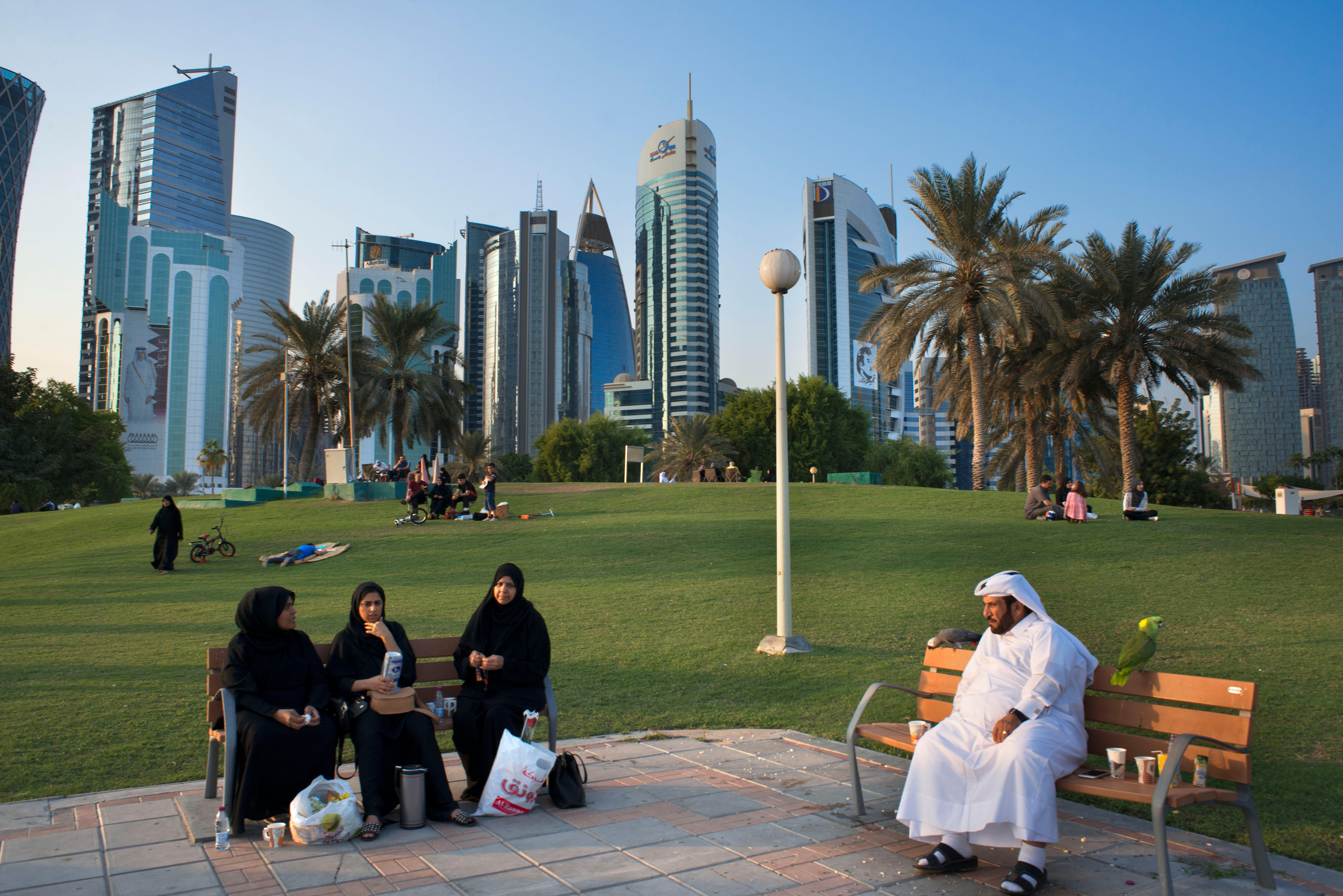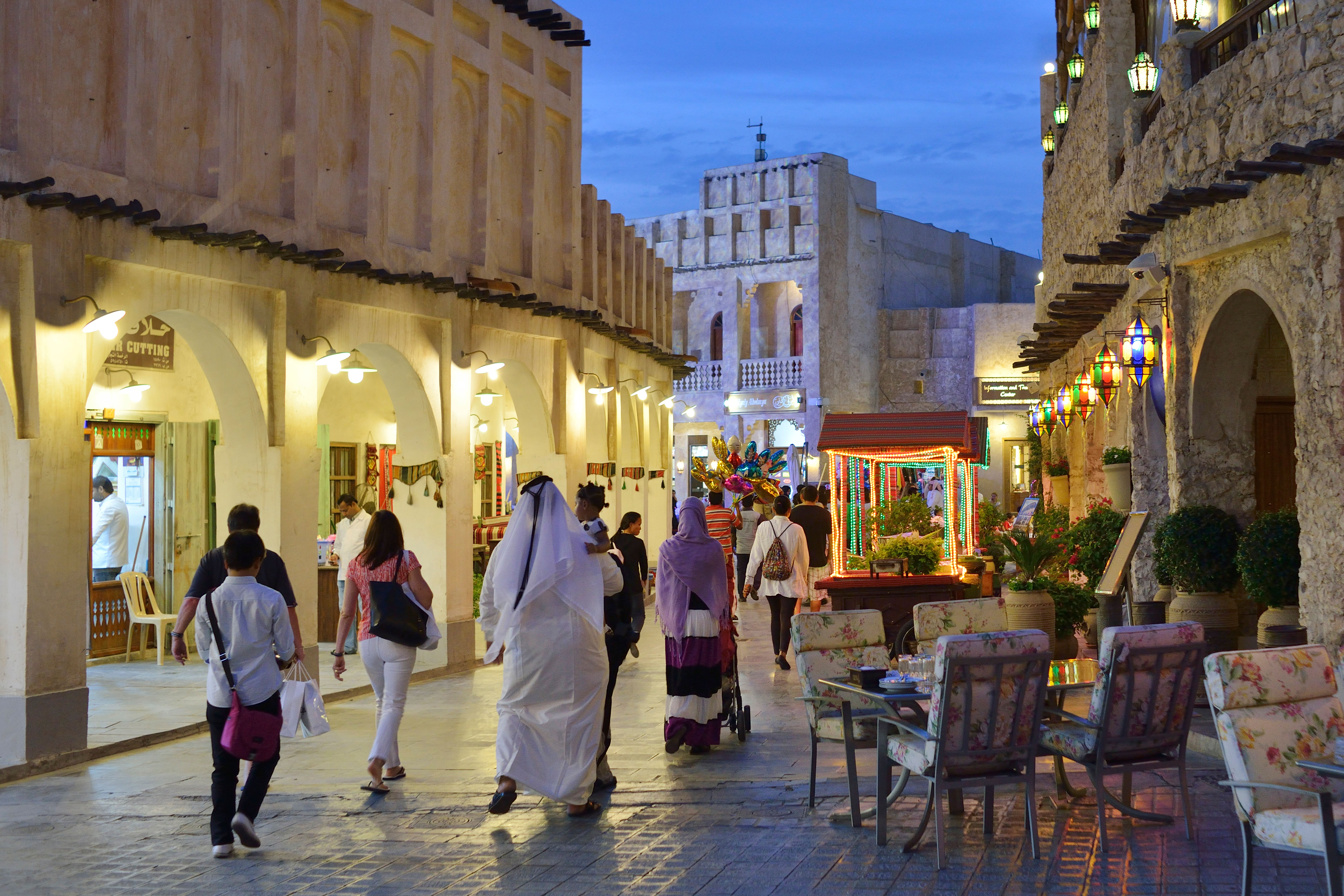Diversity Guide to Qatar
Qatari Culture and Lifestyle
Qatar is a small peninsula along the western shore of the Arabian Gulf. According to local folklore, the landmass shapes a rectangle that resembles the palm of a right hand raised in prayer. Bahrain lies to the northwest, Iran to the northeast, the United Arab Emirates to the south, and Saudi Arabia to the northwest.

In Qatar, dazzling skylines, famous culinary destinations, and opulent automobiles coexist with the ancient customs and architecture of the Arabian desert. In addition, the abundance of employment possibilities draw millions of foreigners to this nation. As a result, Qatar is now the second-largest expat community in the world and a fascinating cultural mosaic.
In addition to its thriving economy, Qatar has made significant investments in its culture, creating internationally acclaimed museums, art galleries, film festivals, and outdoor concerts. It is also prominently included on the global sporting calendar. This comprises prestigious ranking competitions in the sports of tennis, golf, motorsport, and, of course, the 2022 FIFA World Cup.
Regarding Qatari gastronomy, it has been influenced by the Levant, North Africa and the Indian subcontinent, as well as nomadic Bedouin culture, over the centuries. The result is a cuisine full of complex flavours with a combination of slow cooking techniques and a rich blend of spices. People, including families, tend to eat late in Qatar. It isn’t unusual to sit down to a meal at 10 pm on a weekday, and many cafes stay open until 2 am (or even later on weekends).
Useful information
The Qatari Riyal (QAR) is the only currency used in the country. You can withdraw cash at ATMs, which are widely available in shopping centres, hotels and banks around the country.
You drive on the right hand side of the road in Qatar.
For Qatar the associated plug type is G, which is the plug that has three rectangular pins in a triangular pattern. Qatar operates on a 240V supply voltage and 50Hz.
The winter season begins in Qatar with temperatures ranging from 25 to 33°C on average. However, the sun sets early and temperatures drop by about 10 degrees at night. You can expect it to be sunny and sometimes breezy. It might rain or storm occasionally.
The first day of the week is Sunday and the weekend is Friday and Saturday. The holy day is Friday so banks and other services will be closed. Some shops also close a couple of hours before midday prayers and reopen afterwards, so check opening hours before you head out.
The time zone is GMT +3. The exact timing varies each day according to the sun's position.
The Islamic faith plays an integral role in daily life. Prayers take place five times per day: at dawn (Fajr), around midday (Duhr), in mid-afternoon (A'asr), at sunset (Maghrib) and about two hours after sunset (‘Esha).
Its People

Qatar has undergone a population explosion in recent years reaching three million by 2021 according to the World Bank. Qatar was originally settled by Bedouin nomads from the central part of the Arabian Peninsula. Qatari citizens, however, constitute only a small portion, less than 15% of the total population today. Economic growth beginning in the 1970s created an economy dependent on foreign workers mostly from India, followed by Nepal, Bangladesh, Philippines, Egypt, Sri Lanka and Pakistan who now far outnumber nationals. Few Qataris retain a nomadic lifestyle. Due to a massive influx of male foreign construction workers, males outnumber females more than three to one.
The Qatari people are descendants of Bedouin; Arab-speaking nomadic groups who lived in the Middle Eastern deserts and maintained a tradition of generous hospitality. That being said, Qatari society tends to be fairly conservative in most aspects, which is a result of heavy influences from Islamic traditions. Family, traditional architectural features, items associated with the nation’s past (such as desert nomadism, Bedouin tents and carpets, camels, maritime trade, and pearls), and images of the ruler are important national symbols.
Language
The official language in Qatar is Arabic. As a result of the influx of foreign workers, many other languages are commonly spoken, including English, Urdu, Hindi, Malayan, and Tagalog.
Religions
Islam is the main religion in Qatar. The citizens of Qatar are about 90% Shi'a Muslims and 10% Sunni Muslims. There are other religions that are being practice in Qatar, specifically for non-citizens who are working in Qatar. The religious spread of the population residing in Qatar is split at roughly 67.7% Muslim, Christians at 13.8%, Hindu at 13.8%, Buddhist with 3.1%, folk religion <.1%, Jewish faiths at <.1%, other faiths 0.7%, and unaffiliated at only 0.9% of the population. There is religious freedom in Qatar. The constitution allows freedom to associate with other religion aside from Islam.

